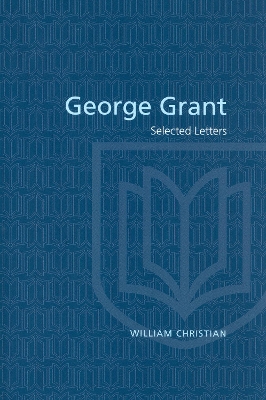Heritage
1 total work
George Grant was one of Canada's foremost political and religious thinkers. In his published writings, Grant was a careful and guarded writer, but in his letters he was frank and spontaneous, expressing ideas and opinions that he hesitated to convey in print. Grant's letters are remarkable for their continuity - about twelve hundred letters survive from 1923 to his death in 1988 - and for their quality. For more than fifty years, he favoured his correspondents with his observations about international relations, Canadian politics, religion, literature, and philosophy. William Christian has selected some three hundred letters, postcards, telegrams, and journal entries which reveal much about Grant - both the troubled man and the daring thinker.
His correspondence begins with the letters from his early years at Upper Canada College and his undergraduate days at Queen's University, followed by letters from London during the Second World War, when he struggled with the conflict between his pacifism and his sense of duty. The middle section includes letters that describe his life at Dalhousie in the 1950s, his resignation from York University, and his hopes to create in the department of religion at McMaster University a kind of fifth column that would preserve a university within the multiversities he thought had taken over higher education in Canada. The later letters feature his remorseless attacks on what he felt were the perfidies of Trudeau during his long tenure as prime minister.
His correspondence begins with the letters from his early years at Upper Canada College and his undergraduate days at Queen's University, followed by letters from London during the Second World War, when he struggled with the conflict between his pacifism and his sense of duty. The middle section includes letters that describe his life at Dalhousie in the 1950s, his resignation from York University, and his hopes to create in the department of religion at McMaster University a kind of fifth column that would preserve a university within the multiversities he thought had taken over higher education in Canada. The later letters feature his remorseless attacks on what he felt were the perfidies of Trudeau during his long tenure as prime minister.
